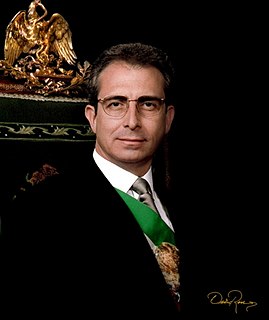A Quote by Stephen Kinzer
I don't have any problem with the United States acting on behalf of its own interests. That's what big powers do; that's what all countries do. I would just like to see us analyze in a serious way what really is in our interest. Sometimes we intervene in foreign countries in ways that seem successful at first. In the end, however, we wind up with unpredicted consequences that make us regret those operations.
Quote Topics
Related Quotes
No one would argue that it's in the United States' interest to have independent knowledge of the plans and intentions of foreign countries. But we need to think about where to draw the line on these kind of operations so we're not always attacking our allies, the people we trust, the people we need to rely on, and to have them in turn rely on us.
9/11 was a gamechanger in so many terrible ways, not just for the United States and for our own national security apparatus but for the whole world. And those attacks blew apart any notion of separation between foreign and domestic threats, any notion that such attacks only happen to other people in other countries.
So we really need jobs now. We have to take jobs away from other countries because other countries are taking our jobs. There is practically not a country that does business with the United States that isn't making - let's call it a very big profit. I mean China is going to make $300 billion on us at least this year.
Relations between the United States and other countries, and our role as a global leader, are advanced by our willingness to help other countries in need. Foreign aid is essential to protecting U.S. interests around the world, and it is also a moral responsibility of the wealthiest, most powerful nation.
What we need to do first is to find out how big the migration problem is and what the economic consequences of it are for the United States and Mexico. We hear a lot of extravagant numbers and claims made, but very few hard facts. We don't really know what, if any, burdens illegal migrants impose on the US economy or the social welfare apparatus, and those issues must be clarified.
We have to work sincerely and responsibly to thwart any attempt to divide the Arab nation into small groups, with which foreign countries would deal separately. This would eventually be in the interests of Zionism, which stands behind such policies, formulating the relevant theories and promoting distorted information to world politicians, especially in the West, in order to make them adopt an approach which is harmful to the Arab nation and is even against the legitimate interests of their own countries.
If it is written and read with serious attention, a novel, like a myth or any great work of art, can become an initiation that helps us to make a painful rite of passage from one phase of life, one state of mind, to another. A novel, like a myth, teaches us to see the world differently; it shows us how to look into our own hearts and to see our world from a perspective that goes beyond our own self-interest.
The fact that other countries spy on their own people or spy on each other does not address the fact that the US is engaged in massive, bulk collection to the tune of 70.3 million telecommunications a month in France of perfectly innocent people. That has nothing to do with protecting the United States, and has nothing to do with really gathering any kind of meaningful intelligence on France. It is an overreach ... and I think the other countries are justifiably outraged .... As one of our founders said: Those who choose between liberty and security deserve neither.
With the decline of American interests in the outcome of this region, there is no glue holding it together. And the countries in this region are invented ... The last guarantor of the region's borders was the United States, and the US has basically said "the hell with it." What you're really having is the collapse of nation-states because they're not nations. They're only states.
By the end of the 1960s, the United States owned more than half of the Indian rupee money supply, and that had been acquired through food aid. So I think it's very interesting to see the very long history of how sovereignty and food go together. When some countries remove another country's ability to feed itself, it is a very powerful tool. Imperialist countries, like the United Kingdom, like the United States, have used it for centuries.


































